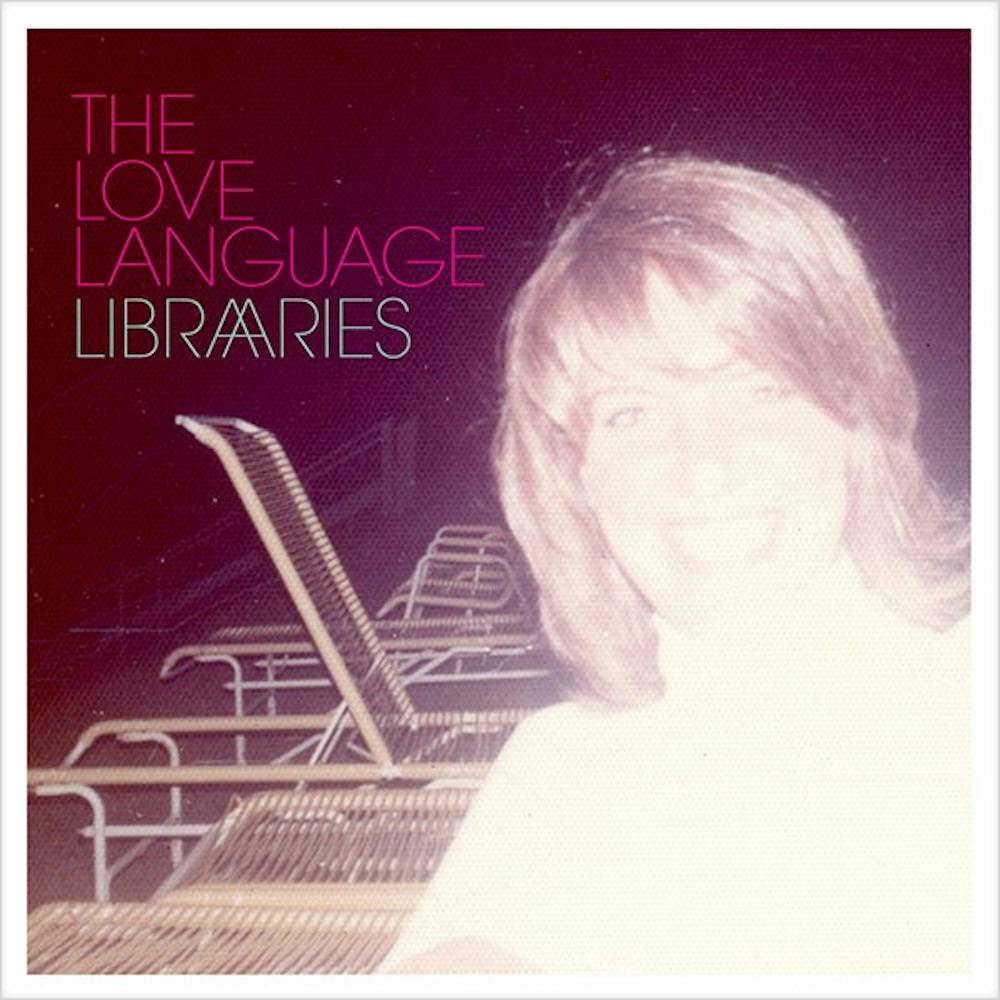The Love Language’s follow-up to its self-titled debut was not recorded in a storage space, dining room or basement. Bid adieu to the lo-fi crackle of the band’s first release — in its wake, The Love Language shines.
The most obvious and arresting contrast between the first record and the group’s new release under Merge Records is the smooth, airy texture that characterizes the recordings. Where its debut rattled through cacophonous, urgent pop songs, Libraries is dreamy and glossy, the sonic equivalent of a hazy ’70s film.
It boasts David Cassidy romanticism and David Bowie ingenuity, and the shift in sound puts Stu McLamb’s intricate songwriting at the forefront. There are no distractions here — where the band’s past work brimmed with clamor and commotion, its sophomore effort is an exercise in masterful restraint.
And while this might disorient listeners expecting a second helping of lo-fi tambourine pop, the shiny new sound isn’t a total about-face.
BJ Burton, the album’s producer and a Love Language member, balances the building melodies and tortured vocals with a tightrope walker’s precision. McLamb’s pristine vocals — once coated in grainy distortion — transmit with nuance and efficacy amid the drums and keyboards.
The evolution from the band’s debut to its new release reveals The Love Language’s propensity for trend-defying songwriting. A great pop song is a great pop song, whether it’s polished to perfection or muddled in distortion, and Libraries is The Love Language’s declaration of this credo.
But despite a markedly studio sound, certain songs still achieve the feeling of being blasted from an FM radio at a ’60s beach bash. “Brittany’s Back” drives forward on a forceful beat, propelled by jangling guitars and searing vocals. McLamb’s heartthrob voice is at its peak here, wailing and crooning at varying volumes.
He wields his vocals deftly, navigating between softness and the abrasive caterwaul that peppered the group’s debut. Unlike the general production of the record, McLamb’s vocals roam untamed, and it’s a nice contrast to the luster that coats each track.
While there’s theoretically enough retro-pop sunshine to render Libraries stylized, the group sticks to concise songs that keep the album from veering into novelty.



